Why Choose Food4Fish?
-
UK-made, high-quality
ingredients -
Trusted by 10,000+
fish owners -
Nutritionally balanced for
healthy fish
Brands We Work with
Our Reviews
This is what people say about us!
Lorem ipsum dolor sit amet, consectetur adipiscing elit. Cras vel urna et lorem commodo cursus. Mauris vestibulum in sapien ut vehicula.
Lorem ipsum dolor sit amet, consectetur adipiscing elit. Cras vel urna et lorem commodo cursus. Mauris vestibulum in sapien ut vehicula. Morbi et sem volutpat, tincidunt lorem vitae, viverra odio. Nullam orci sapien, luctus in tellus id, posuere porttitor elit.
Got Questions?
We have all the answers.
What type of fish food should I choose for my fish?
To choose the right fish food, consider your fish's feeding
habits and dietary needs. For surface feeders flakes or floating pellets are
suitable. Bottom feeders, such as plecos, prefer sinking pellets. A balanced
diet includes a variety of food types, including, frozen, flake, pellet and
freeze-dried options,
Here's a more detailed breakdown:
Types of Fish Food:
Flakes: These are a popular and versatile option, especially
for mid-to-surface feeding fish.
Pellets: Ideal for surface and bottom feeders, with sinking
varieties for bottom dwellers.
Sinking Pellets: Great for bottom feeders who eat from the
substrate.
Grazer: Can be placed to the tank wall via the fixing cup great
for fish to use as a feeding station for fish to graze from throughout the day.
Sticks: Floating food for larger surface-feeding fish.
Freeze-Dried: A convenient and nutritious option for fish
that require a varied diet.
Frozen: Frozen food is a great way to add variety and
protein to your fish's diet.
Factors to Consider:
Feeding Habits: Observe your fish's feeding behaviour to
determine if they are surface, mid-water, or bottom feeders.
Dietary Needs: Consider whether your fish are herbivores,
carnivores, or omnivores.
Variety: A varied diet is important for your fish's health
and well-being.
Food Size: Ensure the food is appropriate for your fish's
mouth size.
New Food: When introducing new food, observe if your fish
are eating it and remove any uneaten food to prevent water quality issues.
Tips for Choosing Fish Food:
Check the label: Pay attention to the ingredients and
nutritional information.
Don't overfeed: Overfeeding can lead to poor water quality
and health problems.
Observe your fish: Monitor their appetite and general health
to ensure they are receiving a balanced diet.
How long does delivery take?
We aim to deliver all the frozen orders on a next day
service any dry food orders would be delivered within no more than 2 days from
dispatch next day where possible.
How should I store fish food?
Frozen foods should be kept in the freezer only remove the amount you wish to feed then place the product back in the freezer.
Liquid foods should be stored in a cool place and dry foods can be stored at room
temperature.
Can I feed pond fish in cold water?
No, it's generally not recommended to feed pond fish in very
cold water. As the water temperature drops, fish metabolism slows down, and
they may not be able to properly digest food, potentially leading to health
problems. It's best to stop feeding once water temperatures consistently fall
below 10°C (50°F).
Here's a more detailed explanation:
Reduced Metabolism:
Fish are cold-blooded, and their metabolism slows down in
colder water. This means they need less food and can't digest it as
efficiently.
Digestive Issues:
If you feed fish when their metabolism is slow, the food may
not be digested properly and can decay in their stomachs, potentially causing
health problems.
When to Stop Feeding:
A good rule of thumb is to stop feeding when the water
temperature consistently stays below 10°C (50°F). You may want to reduce
feeding and switch to a more easily digestible food, like wheatgerm, as
temperatures drop.
Signs to Watch For:
Fish will likely stop showing interest in food and may move
to the deeper, cooler parts of the pond.
Aeration:
If your pond is prone to freezing, ensure adequate aeration
to prevent oxygen depletion, which is crucial for fish survival during the
winter.
Do you sell in bulk or offer multi packs?
If you require larger pack sizes than we offer please send us an enquiry.
What is your returns policy?
We do not accept returns of opened food unless there is a clear problem with the product. goods rejected due to defects or excess quantity may be returned to the seller at their expense, with a prompt refund for any payment made.
We do accept returns of unopened food within 30 days of purchase.
My fish aren’t eating what should I do?
If your fish isn't eating, several factors could be at play.
Poor water quality (ammonia, nitrite, inappropriate pH or hardness) can drastically affect appetite. Stress, either from being new in the tank or competition from other fish, can also cause a fish to stop eating. Furthermore, a fish might be a dietary specialist, only eating specific types of food, or could be struggling with a disease or infection.
Here is a more detailed breakdown of potential issues and solutions:
1. Water Quality:
Test your water:
Regularly test your tank's water for ammonia, nitrite, nitrate, pH, and hardness. Poor water quality can be toxic and cause fish to lose their appetite.
Perform water changes:
Regularly perform partial water changes (20-30% weekly) to remove waste products and maintain stable water chemistry.
Ensure proper filtration:
Make sure your filter is functioning correctly and is appropriate for the size and load of your tank.
2. Stress and Behavioural Factors:
Is your fish new?
Newly introduced fish may be stressed and hesitant to feed.
Give them time to adjust.
Is there competition?
Some fish can be aggressive and bully others, preventing them from eating. Consider separating aggressive fish or providing more hiding places.
Is your fish shy or nocturnal?
Some fish are naturally shy or prefer to feed at night. Ensure your tank is well-planted and offers enough hiding places.
3. Dietary Issues:
Try different foods: Offer a variety of food types (flaked, pellet, frozen, etc.) to see if your fish prefers a specific one.
Check food quality: Ensure your food is not stale or expired.
Are you overfeeding? Overfeeding can lead to poor water quality, which can also cause a fish to lose its appetite.
4. Disease and Infection:
Look for signs of illness:
Watch for other symptoms like lethargy, fin rot, cloudy eyes, or abnormal behavior.
Separate sick fish:
If you suspect illness, isolate the fish in a quarantine tank to prevent the spread of disease.
Consult a veterinarian:
If you're unsure about your fish's condition, seek advice from a fish veterinarian or experienced aquarium hobbyist.
Premium Fish Food for Every Aquarium









